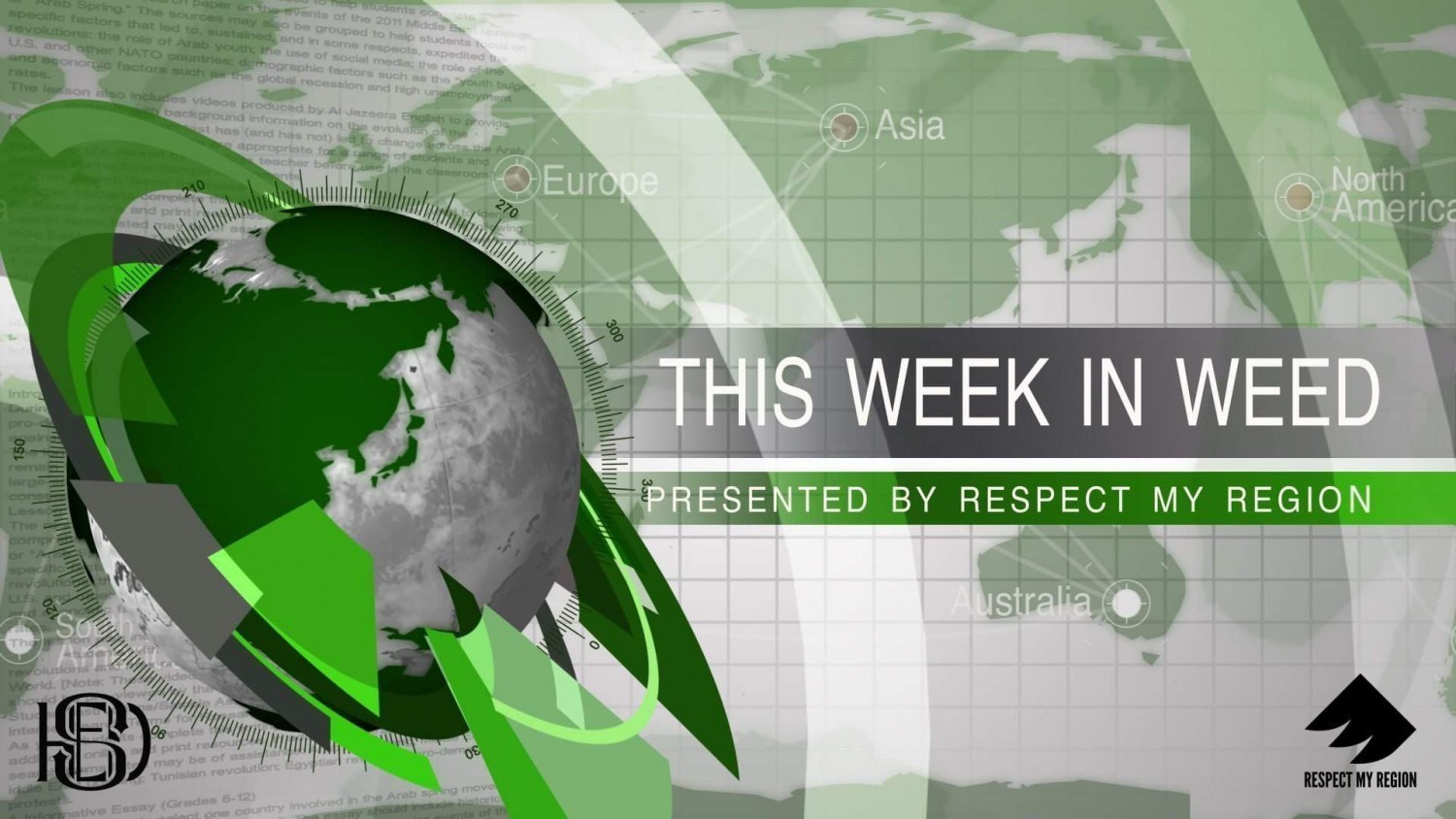The constant flow of cannabis news can be daunting and keeping current can be a hassle. For this reason, Respect My Region keeps an eye out on your behalf, providing a weekly roundup of significant events in the world of cannabis.
This week, we cover THC-detecting lasers, a buzzkill decision from Netflix, an attempt to reverse legalization in Colorado, and a disappointing announcement from the USDA. As always, we will also bring you up to date coverage of state-level legalization developments from the past week.
Texas Researchers Develop Handheld Device That Can Detect THC In Cannabis Using Lasers

Texas researchers claim they have developed a handheld spectrometer that can, with 100 percent accuracy, determine the THC content of cannabis. The spectrometer utilizes Raman spectrometry, a measurement style that utilizes lasers to identify radiation levels and wavelength in test materials.
The new spectrometer fills something of a gap that has grown as a result of federal hemp legalization. In states where cannabis has not experienced comprehensive legalization, there is a need for quick, effective tests to differentiate between hemp and THC-containing cannabis.
Local authorities in such states would benefit from the ability to quickly and accurately differentiate between the two cannabis varieties. Relative to the needs of law enforcement agencies, the new technology boasts some highly advantageous traits.
The handheld spectrometer could be used to determine the chemical nature of cannabis material instantly. This provides law enforcement the ability to test questionable material on the spot, without the need to confiscate the material in question.
The testing also doesn’t do any damage to the material in question, allowing innocent transporters of hemp to walk away with their cargo unperturbed.
Netflix Complies To Demands Of Singapore Government And Removes Cannabis Content From Its Platform

Responding to demands from Singapore’s government, Netflix announced the removal of certain cannabis-related content on its platform. Titles leaving Singapore’s Netflix access include Disjointed, Cooking on High, and The Legend of 420.
The Singaporean government has become infamous for its ruthless stance towards illegal drugs. The country administers mandatory death sentences for cannabis possession exceeding 500 grams. For possession of smaller amounts, punishment can range from caning to serious prison time.
Given the government’s stance, it hardly comes as a surprise that they would censor their citizens’ Netflix access. Netflix, for their part, has often proven willing to allow censorship on its platform at the request of varying authoritarian governments.
New Colorado Ballot Measure Aims To Overturn Legalization In Colorado
Despite the overall success of legalization efforts in past years, critics continue to voice support for prohibition laws.
In Colorado, the first state to legalize recreational cannabis, some such critics are trying to take action.
Anti-cannabis activists filed a ballot initiative to remove legalization wording from Colorado’s constitution. According to the ballot measure, medical-use cannabis and hemp would remain legal.
Despite their desire to overturn legal recreation, the activists’ measure is overwhelmingly likely to fail. The bill has received little-to-no support from state lawmakers, and currently only contains four sentences.
Without a great deal of revision and significant support from voters and lawmakers, the attempt to bring back prohibition in the Centennial State is, fortunately, doomed to fail.
USDA Elects To Not Amend Its Rules Regarding Allowable THC Levels In Hemp
For months, the United States Department of Agriculture has fielded numerous requests to raise the allowable THC levels in hemp.
On Thursday, USDA officials stated that they would not amend the rule, claiming that such changes must come from congress.
The current allowable limit of THC in hemp, .3%, has proven difficult to work with for many farmers.
Under current law, Farmers must destroy any hemp crops testing above the “negligence threshold” of .5% THC. If a certain grower tests above this threshold three times in a ten-year window, they lose their license to grow.
To make matters worse, hemp crops that are destroyed for crossing the THC threshold are not covered by federal crop insurance.
Bruce Summers, an administrator of the USDA’s Agriculture Marketing Service, conceded that the current limit poses a strain on hemp farmers. Summers acknowledged the fact that hemp was prone to rising above the allowable THC due to factors that are uncontrollable by farmers.
Continued Coverage Of State-Level Cannabis Decriminalization and Legalization Developments
In past months, the spread of cannabis decriminalization and legislation progress throughout the United States has been at a fever pitch. New developments seem to surface on a daily basis, and several states are likely to implement recreational legalization in 2020.
New Mexico

A New Mexico Senate committee voted to table a bill that would fully legalize cannabis in the Land of Enchantment. For weeks, New Mexico has been widely hailed as a frontrunner to become the next state to legalize recreational cannabis.
Gov. Michelle Grisham has repeatedly and adamantly voiced her support for such a policy. She even listed it as one of her legislative priorities for 2020. As a result, a comprehensive bill was drafted and passed through an initial house committee before advancing to a senate committee.
On Wednesday, that committee most likely doomed the bill outright, largely at the behest of its chairman, Sen. Joseph Cervantes. Cervantes voiced numerous concerns about the bill, including a provision that would force the state to subsidize costs for prescribed cannabis. He also attacked a provision that would allow individuals with drug charges to get licenses within the cannabis industry.
With this development, it seems New Mexico’s legalization bill will not grace the desk of a governor who has fought tooth and nail to sign it.
Kentucky

For the second year running, a Kentucky legislative committee has approved a bill to legalize medical marijuana. Last year, a medical legalization bill gained approval by the committee, only to then fail in becoming law.
Despite last year’s defeat, supporters of the bill maintain optimism regarding this year’s attempt. Rep. Jason Nemes, the bill’s lead sponsor, said that lawmakers had “tweaked the bill over the summer.” “We made some changes to it,” Nemes said. “We’ve been through this before. It’s a big issue for Kentucky.”
Although the bill is nowhere near a sure thing, the outlook isn’t entirely grim. One of the staunchest opponents of last year’s bill said that the current bill has “a narrow path to victory.”
Virginia

Virginia’s Senate approved a bill that would decriminalize cannabis possession throughout the state. The bill had recently passed through a house committee, and now requires nothing more than the signature of Virginia’s governor.
Given Gov. Ralph Northam’s outspoken support for the bill, decriminalization seems all but certain for Virginia. If the bill becomes law, Virginia will become the 27th state in the US to decriminalize low-level possession of cannabis.
For the bill’s lead sponsor, Sen. Adam Ebbin, this policy change represents an overdue improvement to Virginia’s laws. “We all know […] that prohibition on cannabis in this country has failed,” Ebbin said.










